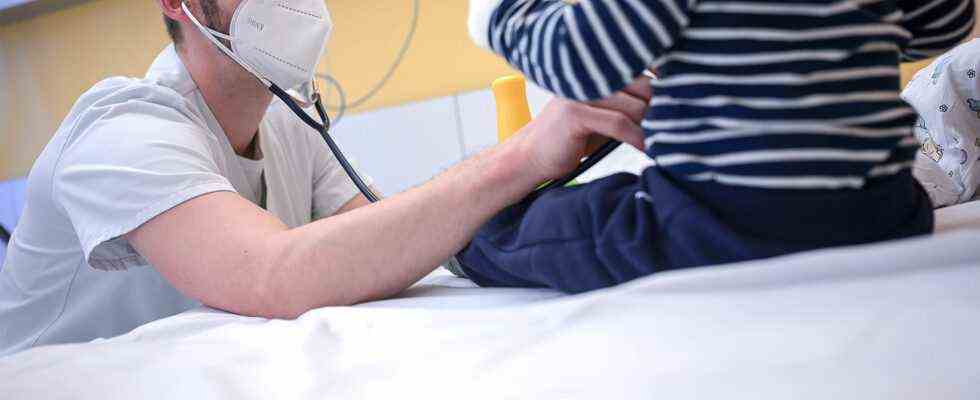Status: 03.10.2021 09:20 a.m.
Many toddlers got through the past winter without the usual colds. The reason: the corona measures. Now a noticeably large number of children and young people are infected. Doctors report catch-up effects.
For a few weeks now, many boys and girls have been going through respiratory infections that would actually only be expected in the winter months. Those under six are particularly affected, said Jakob Maske, spokesman for the Federal Association of Pediatricians, the German Press Agency.
Due to the closings of daycare centers and other corona measures in the past winter and spring, they have not yet come into contact with certain pathogens. “The infections are now being caught up.”
Sharp increase in hospital admissions
The Robert Koch Institute (RKI) reports a sharp increase in hospital admissions for infections with the respiratory syncytial virus (RSV) in one to four year olds. This infection of the upper respiratory tract can be particularly dangerous for premature babies and previously ill children in the first year of life.
According to the RKI, in the years before the pandemic in September, around 60 to 70 one to four-year-olds per week with severe respiratory infections were admitted to clinics, currently there are twice as many. The RKI expects a further increase.
“Unfortunately at the moment there is an escalation,” said Maske, who has a pediatrician practice in Berlin. “We have a little more sick children than usual at that time and fewer and fewer beds in children’s hospitals because there is a lack of staff.” The doctors take care of the care of seriously ill children in autumn and winter.
Doctors advocate that children go back to school and kindergarten consistently and avoid “unnecessary sick leave”.
Image: dpa
“Children’s clinics closed early”
According to Maske, it is already very difficult to place small patients in the hospital. Another reason is that too few child nurses are trained. “The children’s clinics closed very early,” says the pediatrician Thomas Buck from Hanover, member of the board of the Lower Saxony Medical Association.
Larger outbreaks of RSV among children were reported from Israel in May and in the United States, Australia and Japan during the summer months. The RKI therefore warned in the summer to prepare for a similar scenario. “As a rule, children encounter RSV every year and build up a certain level of immune protection,” explained the RKI experts. This help in warding off the pathogens is now missing because there were almost no RSV diseases last winter due to the corona measures.
Plea for more normalcy
The paediatricians advocate making everyday life as normal as possible for children and adolescents after months of deprivation. It is often a difficult decision for parents whether to send their child to daycare or school with a sniffy nose or a sore throat – keyword corona suspicion. “You have to make wise risk assessments,” said Buck. “We want the children to finally go to kindergarten and school again and avoid unnecessary sick leave.” On the other hand, it is also about not overlooking any corona infection if possible.
Worries about the flu epidemic
From the beginning of October, for example, more flu viruses will be circulating again. “We are also concerned that there is a flu wave,” said Buck. In the last half of the winter pandemic, with many hygiene precautions and limited contacts, there was practically no flu wave. Doctors hope that the willingness to get a flu vaccination for the upcoming season will remain high.
In healthy children and adults under 60 years of age, influenza usually proceeds without serious complications. That is why there is no vaccination recommendation for them – but it is not advised against them. In contrast, the vaccination can protect older people from severe flu courses and even fatal pneumonia.
The most favorable date for the vaccination is the period between October and mid-December, because a flu wave usually builds up at the beginning of the year. The Standing Vaccination Commission (STIKO) generally recommends it to people aged 60 and over, most recently with a high-dose vaccine.
There are also recommendations for pregnant women and people with chronic diseases. According to STIKO, vaccinations should also be given if there is an increased risk of occupational infection, for example in the case of medical staff and in all facilities with a high level of public traffic. In addition, the vaccination recommendation applies to people who could infect risk groups, for example family carers.

